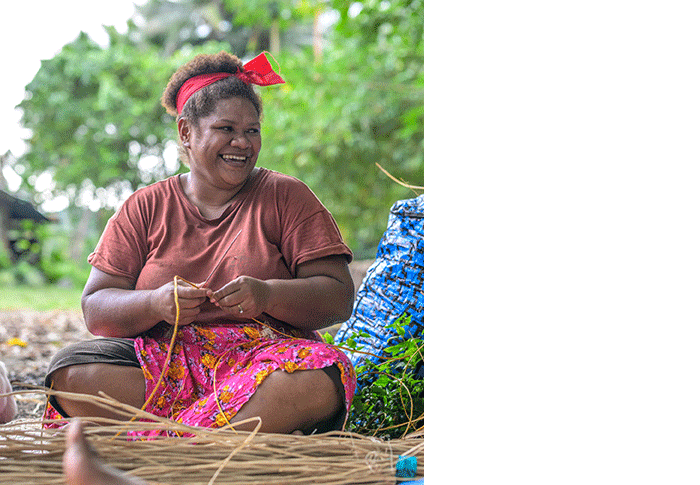The Na Vualiku Project is expected to benefit the lives of about 60,000 Fijians, including government agencies, national and divisional governments and town councils, residents (particularly women), landowners, local job seekers, workers in the tourism industry, local tourism enterprises in Vanua Levu, visitors and residents of the wider Pacific.
Nearly one third of women’s employment in Fiji before the pandemic was in tourism, hospitality, and retail, and the vast majority are self-employed in micro to small enterprises. In Vanua Levu, a sizable share of women’s self-employment is in the production of handcrafts and cultural products. Component 1 of the Project also supports existing MSMEs to increase their sales of tourism and tourism-related products and services, and will boost their competitiveness, the quality of their offer, market access, and access to business development services.


Benefits for Communities
Community-based tourism activities and the rehabilitation of the Waisali Rainforest Reserve (on community-owned land) will improve knowledge of tourism and conservation, build business and tourism skills and, ultimately, increase incomes into communities from tourism.
The tourism industry will also benefit through enhanced environmental sustainability, health and hygiene, and cleanliness, which will increase the destination’s attractiveness.
Positive Impacts of Transportation Investments
Transportation investments planned in the Project will enhance road safety for residents and visitors, reduce transport times for trade and business activities, and improve opportunities to use environmentally friendly non-motorized forms of transportation (for example, through new bicycle paths and sidewalks).
Waste Management Improvements
Investments in essential services, especially solid waste management and wastewater management, will improve overall environmental sustainability by preventing waste from impacting terrestrial and marine environments, which in turn will also benefit agriculture, aquaculture, and fishery MSMEs, who will have access to more pristine resources.

